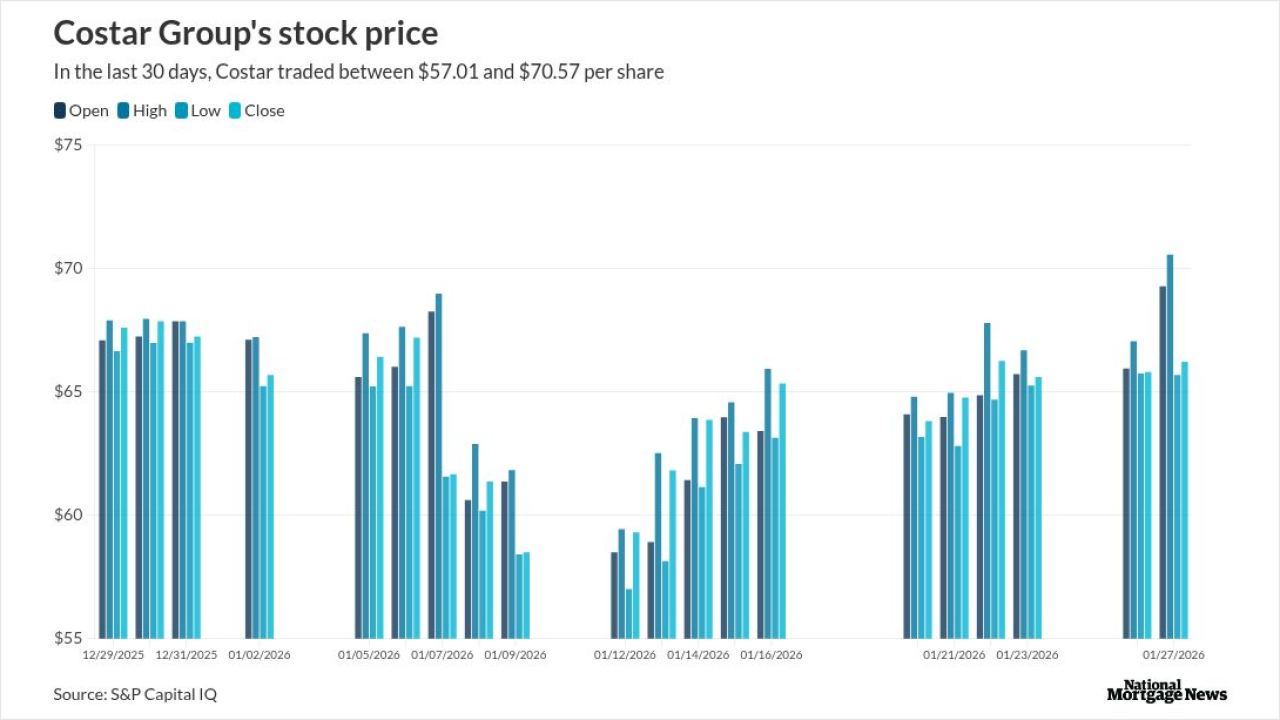The Federal Open Market Committee left the fed funds rate unchanged Wednesday, disappointing public officials advocating for a quick start to cuts that
"The committee does not expect it will be appropriate to reduce the target range until it has gained greater confidence that inflation is moving sustainably toward 2%," the FOMC said in a statement issued at the end of its two-day meeting on Friday.
What may be more important is what was not in the statement.
"They removed any language about the potential for future rate hikes," Melissa Cohn, regional vice president of William Raveis Mortgage, noted in an email.
Fed Chairman Jerome Powell confirmed the growing consensus on a cut in a subsequent press conference but also said that another meeting will likely pass without one.
"I don't think it's likely that the committee will reach a level of confidence by the time of the March meeting," he said.
MBS pricing vacillated Wednesday but more due to
"It's bounced around a lot, but the Treasury market is way up right now. So mortgage rates could be lower tomorrow," he said in an interview late Wednesday.
The Fed's comments about March likely did have a small impact on the mortgage market, but the outlook for rates remains uncertain with jobs data set for release Friday holding the potential for shifting it again, said Barry Habib, founder and CEO of MBS Highway.
For the time being, although the Fed may not be interested in cutting in March, it looks like they could cut at the next meeting, Habib said.
"We're still forecasting that by May 1, we will get a rate cut, but now diminishing the odds for March," he said.
The Fed's immediate inaction was largely anticipated but out-of-step with what some members of Congress such as Sen. Sherrod Brown, D.-Ohio, and lenders would like to see. The committee makes regular reports to Congress but has autonomy in its monetary policy decisions.
"Higher rates are locking Americans out of two primary means of building wealth — buying a home and starting or growing a small business," Brown said in a Jan. 30 letter to Fed Chairman Jerome Powell that CNN was the first to share.
Weakness in housing is unlikely to be a priority for the Fed because valuations remain strong, according to Fannie Mae Chief Economist Doug Duncan.
"Housing certainly is slow, but prices are still up because of supply issues. So I think they're not going to worry about that," Duncan said in an earlier interview.
But the FOMC may be considering a policy change around the Fed's Treasury bond holdings, which aren't as directly tied to long-term mortgage rates but do factor into the outlook for housing finance, Duncan said.
"They have to be looking at the volume of Treasuries that's going to come into the market this year," he said.
Policymakers may be particularly interested in this because the relationship between short- and long-term Treasuries
More typically, long-term rates are higher than short-term rates, but the reverse has been true of late. That has raised concerns because it can be indicative of a pending recession and upends some typical rate relationships mortgage lenders and other businesses rely on in their funding models.
The curve has gotten closer to its normal shape since policymakers indicated an intent to move into easing mode at some point this year (and for other reasons, Fannie
"Looking at the volume of Treasuries that's going to come into the market, what does that mean for the shape of the curve? They have to be talking about that," Duncan said.




